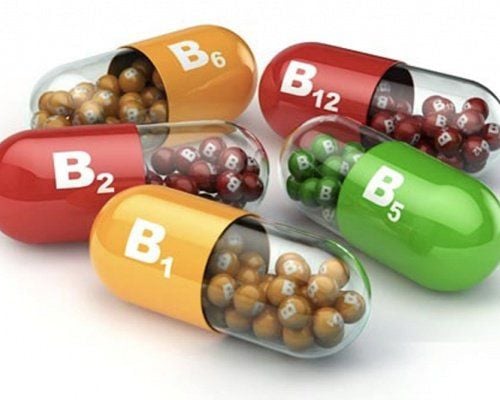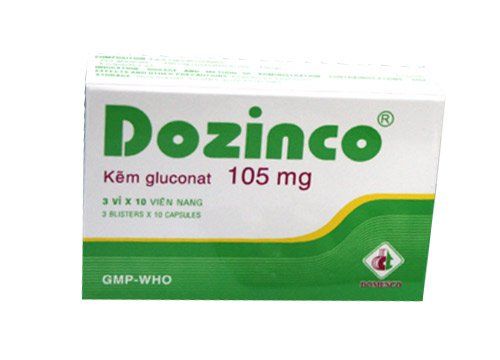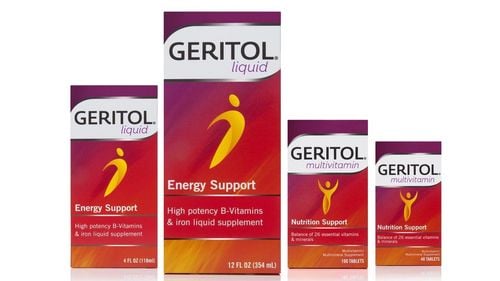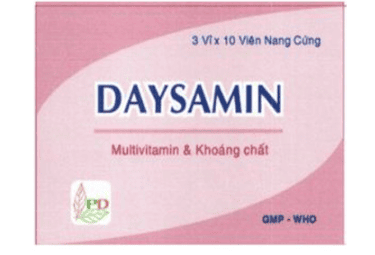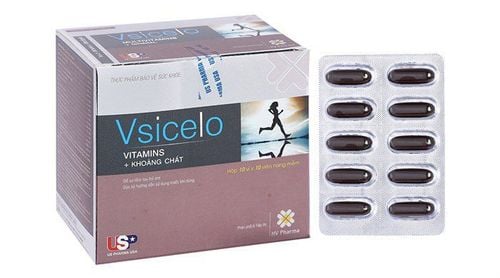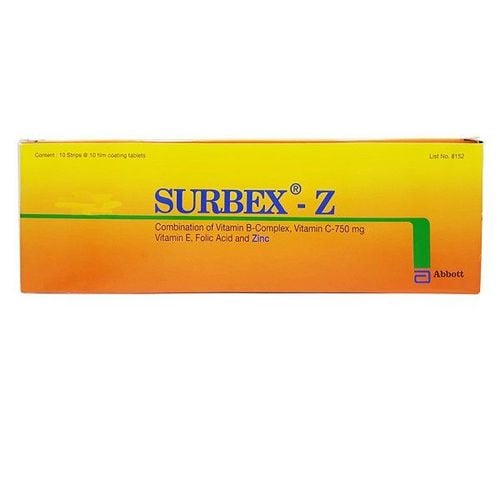This is an automatically translated article.
Saprozin is a drug belonging to the group of minerals and vitamins, capable of supplementing and preventing zinc deficiency. To learn more about ingredients, uses, dosages and important notes when using Saprozin, you can follow the article below.1. What is Saprozin?
Saprozin is a nuggets with the main ingredient being zinc.
Pharmaceutical name: Saprozin. Drug group: Minerals and vitamins. Dosage form: Medicinal nuggets. Ingredients: Each sachet contains zinc (as zinc gluconate 70mg) 10mg. Packing: Packed in boxes of 30 packs x 3g or 25 packs x 3g.
2. Uses of Saprozin
We all know, zinc is an essential trace element and plays an important role in the body. It is also an indispensable component of many enzyme systems (carbonic anhydrase, dehydrogenase...) that support the synthesis of proteins, glucid and nucleic acids. Zinc occurs in all tissues, keeping tissues intact. When zinc deficiency, the body will slow down growth, causing defects in the process of dividing tissues such as skin, intestinal mucosa or the immune system. Therefore, preparations like Saprozin have the ability to supplement, prevent zinc deficiency or support the following cases:
Malnutrition, growth retardation, growth retardation, rickets in children small. Mothers who are pregnant or breastfeeding. People with unscientific and unbalanced diets must be fed for a long time by intravenous route. People with acute or chronic diarrhea. People experiencing digestive disorders such as: Slow digestion, loss of appetite, nausea, vomiting, mild constipation. People with recurrent infections in the respiratory tract, skin, and digestive tract. People with night blindness, dry eyes, corneal ulcers. In addition, severe zinc deficiency is also characterized by manifestations of skin and mucosal lesions, typically: atopic dermatitis, diarrhea, inflammation around the natural openings (anus, vagina), dystrophy nails (wrinkled nails, white streaks, slow growth of nails), enteritis, dry eyes.
3. Dosage and how to use Saprozin
3.1. Dosage Nutritional supplement dose:
Children from 6 to 12 months: Take 1⁄2 sachets/day. Children from 1 to 3 years old: Take 1⁄2 - 1 pack/day. Children from 3 to 10 years old: Take 1 sachet/day. Children over 10 years old: Drink 2-3 times a day, 1 pack each time. 3.2. How to use Com dissolve with boiled water to cool and then give it to children to drink and drink as prescribed by the doctor. When clinical symptoms have improved, the dose should be reduced. The drug should be divided into 1-2 times per day and drink with plenty of water after meals.
3.3. Handling in case of missed dose, overdose Saprozin Overdose: In case of taking too high a dose (using more than 15 sachets/day) may lead to immunosuppression instead of immune stimulation. Drinking high concentrations of zinc for a long time will cause the body to become deficient in copper (due to reduced absorption), thereby causing anemia due to a lack of red blood cells and neutropenia. At this time, chelating drugs (EDTA) can be used to remove zinc from the serum.
In acute zinc poisoning, zinc salts are gradually eroded by the formation of zinc chloride from stomach acid. The treatment is for the patient to drink milk, activated charcoal or alkaline carbonate, avoid using methods of vomiting or gastric lavage.
4. Note when using Saprozin
4.1. Contraindications Saprozin is contraindicated for use in the following cases:
Subjects are allergic or hypersensitive to any active ingredients, excipients in the drug. Patients with severe renal, hepatic or adrenal insufficiency. History of kidney stones. 4.2. Side effects During the use of the drug, patients may experience undesirable side effects such as: Abdominal pain, nausea, vomiting, indigestion, stomach irritation, gastritis, diarrhea. In particular, these symptoms are more common when taking the drug on an empty stomach and can be overcome by taking it with meals.
4.3. Drug interactions The body's ability to absorb zinc during drug use may be reduced, when used together with preparations containing phosphorus, iron, tetracycline, penicilamin. In addition, zinc used with copper also reduces the absorption of copper.
4.4. Cautions and precautions Zinc should not be given to patients with acute vomiting or active gastric ulcer. Zinc should not be used at the same time with iron, copper, and calcium in order to avoid the occurrence of a situation that reduces the absorption of zinc, it is best to take it about 2-3 hours apart. There are currently no reports on the effects of Saprozin on women during pregnancy and breastfeeding, but these subjects should still be used with caution. Above is information about the uses of Saprozin, its ingredients, how to use it and important notes. However, to ensure maximum effectiveness as well as safety, patients should consult their doctor and take the drug exactly as prescribed.
Please dial HOTLINE for more information or register for an appointment HERE. Download MyVinmec app to make appointments faster and to manage your bookings easily.




